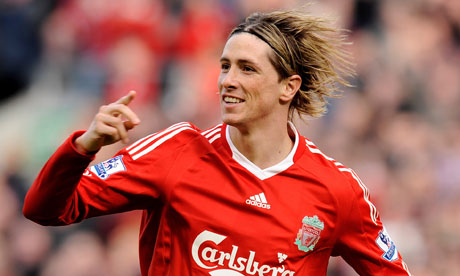
England's dismal failure at the World Cup can be blamed on the Premier League's inability to promote home-grown talent, according to the president of Spain's La Liga.
José Luis Astiazarán has questioned the number of young foreign players at Premier League clubs and said the principal reason Spain have reached Sunday's final against Holland is that "77.1%" of footballers in their domestic league are Spanish-qualified, a direct result of home-grown players being given the opportunity in their clubs' first teams. In the Premier League fewer than 40% of players are English.
"In La Liga there are 77.1% Spanish players, 16.7% European and 6.7% non-European," Astiazarán said. "Our strategy is to work very hard with young home-grown players and to try to have a mix between them and experienced players.
"Why is it not a high number of foreign players in La Liga? Because we invest more and more in young Spanish players than in young foreign players. England has many times taken young players from outside who are 14, 16 years old. These kind of players are not English. This is one of the most important differences between Spain and England. We invest in young Spanish players. In Arsenal, Liverpool, Manchester United there are a lot of young Spanish, French and Italian players – maybe this is why at the moment you are not creating young English players.
"These [young foreign] players cannot play for the English national team. It's good to have goalkeepers from outside. But how many English goalkeepers are in the Premier League?"
Astiazarán said that unlike their English counterparts, Spanish clubs take youth development very seriously and are prepared to give young players opportunities in their first teams. "Spanish teams are working with a very serious strategy in the formation of young players," he said. "The players who become attached to clubs are from the local area and there is a fidelity [each way] and they start playing in the first division at 16 or 17."
He added that all La Liga clubs have academies and many have a holistic strategy that offers education and pastoral care to their young footballers . "At six to eight years old there is no competitive football in the academies, only coaching. Then from eight to 10, in some areas of Spain, they will play matches with controls. After this they start to play more competitively."
Spain are also the reigning European champions and Astiazarán does not deny that imported, established foreign stars have aided the development of domestic footballers. "OK, there are very good foreign players who help improve the Spanish players' level because we have players coming from the major leagues who have played in the Champions League and big competitions in Europe and this is important," he said.
"We have many young players who are playing in good teams. This is very important because they have opportunities to play in the first teams at the top level in the league. After this they know what it is to play with experienced players, they [too] have experience to play in the big competitions."
A criticism levelled at England during the World Cup was that big-name players formed cliques that damaged team spirit. Despite Spain including Xavi, Andrés Iniesta, David Villa and Carles Puyol, Astiazarán claims that the team's prevailing culture does not allow egos. "In Spain we have the results and everyone is just thinking to win," he said. "This is very important. With bigger stars it's very complicated to do it but we have bigger stars and they know the way."
Astiazarán also claimed that Spain have found a successful blend of youth and experience. "In the national team we have this with, say, Pedro, [who is 22], Jesús Navas [the 24-year-old midfielder] and [Carles] Puyol." The 32-year-old Barcelona defender's goal against Germany, of course, took Spain to their first World Cup final.
Though Germany redrew their youth structure after a dismal performance at Euro 2000, Astiazarán said: "It is more that we have been working [for] a lot of years towards this moment."

